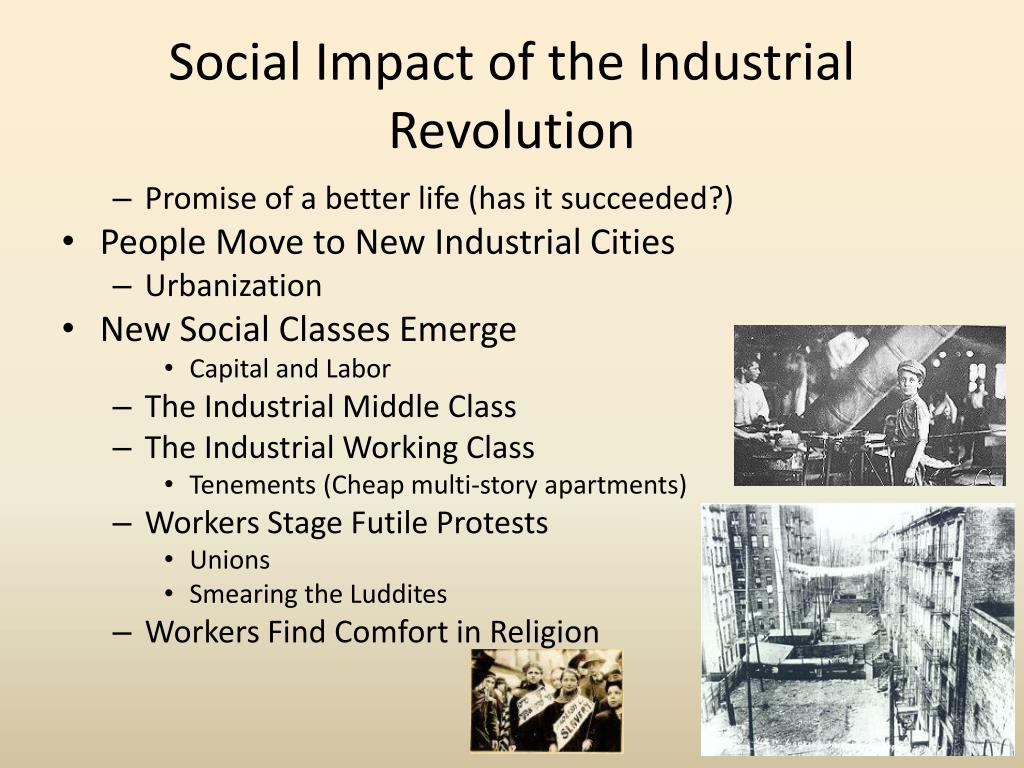
 Relevance: Sociology:
Relevance: Sociology:
Sociology – The Discipline: Modernity and social changes in Europe and emergence of sociology.
The Industrial Revolution increased the material wealth of the Western world. It also ended the dominance of agriculture and initiated significant social change. The everyday work environment also changed drastically, and the West became an urban civilization. Radical new schools of economic and philosophical thought began to replace the traditional ideas of Western civilization.
Background

The Industrial Revolution precipitated the world’s second great increase in economic productivity. The first occurred 15,000-20,000 years ago during the Neolithic Revolution, when small communities became less nomadic and began to base their existence on animal husbandry and agriculture. The Industrial Revolution, which began in the mid-1700s and lasted into the mid-1800s, was similarly a revolutionary experience. It increased material wealth, extended life, and was a powerful force for social change. It undermined the centuries-old class structure in Europe and reorganized the economic and philosophical worldview of the West.
Preindustrial Europe was static and based upon privilege. The most powerful social group was the aristocracy.
The Industrial Revolution was preceded by an agricultural revolution that increased the food supply while decreasing the amount of labor needed. Traditionally, the primary goal of agriculture was to produce enough food to prevent famine.
The basic effect of supply and demand was at the center of most of the class conflict in this preindustrial world. Both bad harvests and increased population affected the price of food.
A multifaceted revolution in every aspect of agricultural production would eventually eliminate this ancient curse. The traditional mode of farm production that had existed for centuries was abolished.
The greatest social and economic impact of the agricultural revolution came from the “enclosure movement,” in which farmers were able to enclose their fields and grow different crops during different seasons.
This drastically changed the centuries old model of the “open field system,” in which farmland was used in a semi-public fashion that prevented farmers from growing patterns that differed from traditional ones.
The reliance on science and technology, the questioning of traditional methods of agriculture, and the centralization of factors of production set the stage for the onset of industrialization.
This revolution in expectations would both stimulate and focus the drive toward industrialization. The new demand for consumer goods produced the first workshops and factories.

Impact
- Industrialization increased material wealth, restructured society, and created important new schools of philosophy. The social impact of industrialization was profound.
- For the first time since the Neolithic Revolution, people worked outside of the local environment of their homes. They arose every morning and traveled to their place of employment. This was most often in a workplace known as a factory.
- The new machinery of the Industrial Revolution was very large and sometimes required acres of floor space to hold the number of machines needed to keep up with consumer demand.

The most important aspect of this new economic order was the fact that the skills needed to succeed were in many ways different from those that had been needed in the earlier economy.
- Artisans had the easiest time transitioning to the new economic paradigm. The fact that they had highly developed manual skills enabled them to adapt to the new machinery much easier than their agricultural counterparts.
- The industrial economy had a new set of rules and time schedules for the common laborer. The work environment not only moved indoors, but the pace of the work changed drastically.
- Instead of driving a horse that pulled a plow or wagon, the machines drove the worker.
- In many ways women suffered more than men. In both the urban artisan economy and the rural agricultural world, women were traditionally regarded as playing an equally important role as men. They were full partners in the family’s quest for economic success.
- Their status changed substantially as a result of the Industrial Revolution.
- Their labor became a commodity to be exploited. They were as a rule given the lowest-skilled, lowest-paying jobs. They were regularly bullied by both their bosses and their husbands. In many ways their labor and responsibilities doubled.
- They were not only responsible for their jobs in industry, but they were also expected to continue their traditional roles at home. They labored for ten hours in the factory and continued for untold hours once they arrived home. It must be remembered that by law men still controlled their families.
- Women had no political, social, or economic rights outside the home. They were forbidden to vote or own property. The “rule of thumb” was still supported by most courts in the Western world.
- This “rule of thumb” referred to the fact that a man could beat his wife with a stick, as long as it was not larger than the width of his thumb. Women did make some strides in their ability to choose a marriage partner; traditionally, marriages had been arranged for the most part to establish economic connections between families.
- When young women moved to the cities to work in the factories, they most often chose a marriage partner from among the young men they came into contact with at their boarding houses or place of employment.
- Child labor also changed as a result of the Industrial Revolution. Children were expected to help the family in the traditional economy, but usually they had been assigned tasks that were commensurate with their age.
- The Industrial Revolution also accelerated the growth of the urban population.
- One of the more important consequences of urbanization was a rapid increase in crime. This was the result of three factors that dominated the urban landscape. The first two were poverty and unemployment. There was no job security or social security for the factory worker.
- Industrialization drew thousands of people to the urban areas in search of employment.
- One major attempt to deal with these problems was the creation of a professional, full-time police force whose members were trained in the latest techniques of crime prevention.
- Secondly, there was a vigorous attempt to reform the prison system. It was accepted among most intellectuals of the time that prisons should not be solely places of punishment.
- There was widespread acknowledgement of the belief that, through proper training and guidance, criminals could be reformed. Education would allow prisoners to find a productive place in the new urban industrial society.
The Industrial Revolution also accelerated change in the area of political and economic thought. The dominant economic model of the early industrial period was mercantilism, a command economy based upon the belief that there are a finite number of resources in the world.
- The primary economic goal of each nation was to control as many of these resources as possible. Its trade policies were a form of eighteenth-century protectionism.
- The Industrial Revolution, because of its increased productivity, greatly expanded peoples’ ability to choose.
- By the beginning of the nineteenth century, economic thought became very pessimistic because of the inability of society to solve the conditions of the industrial working class.
- The success of the Industrial Revolution in expanding both productivity and jobs eventually changed the economic pessimism of the early nineteenth century.
- The dismal view of the future of the working class would eventually be replaced by utilitarianism and socialism.
- Socialism was an alternative theory, based upon the premise that true economic equality could only be attained if the workers controlled the means of production as well as the distribution of goods.
- This was a reaction against both the hardships of the working class and the economic inequality of capitalism. Basic socialist theory predicted that competition, the lifeblood of the free market, would eventually reduce to a small minority the number of capitalists controlling the economic system.
- In the end, utility carried the day. Over time reform legislation increased the basic social, economic, and political rights of the working class. They in turn realized it was in their own best interest to work for continued change through the existing political system.
The Industrial Revolution increased the material wealth of humanity, especially among the nations of the West. It increased longevity and accelerated the growth of the middle class. It helped to create the modern world view that through the proper use of science and technology, a more fruitful quality of life could be achieved.

Your thesis regarding labourers and artisan workers requires us to forget the atrocious conditions which gave rise to the Union movement.
Undoubtably wealth became more and more focussed in the hands of a few, until today when the top ten wealthiest own over ninety per cent of the worlds wealthiest.
Poverty is rising and with it increased crime.
Another revolution to reset wealth distribution is imminent.
We can only hope it will be peaceful!